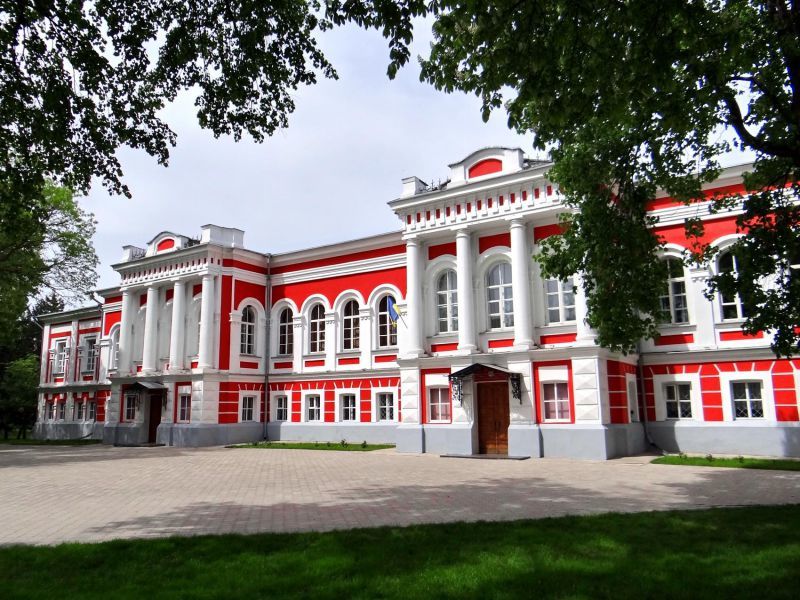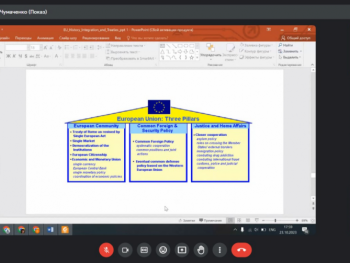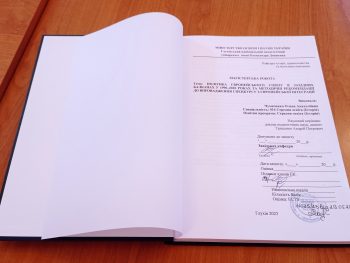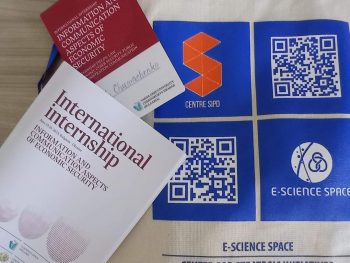
Formation of a common space of freedom, security and justice that declared as one of the most important tasks of the European Union is impossible without the European space of security and integration of nations that are not formally yet belong to the EU. Ukraine signed the Association Agreement with the EU in 2014, confirming its integration to the EU as the main vector of its foreign policy. Among other commitments, the agreement commits both parties to promote a gradual convergence toward the EU’s Common Security and Defence Policy (CSDP). This field is particularly important in a view of Russia’s military actions towards Ukraine.
The town of Hlukhiv is located only 14 km from russia but it is the centre of cultural and scientific life in the north-eastern region of Ukraine due to Oleksandr Dovzhenko Hlukhiv National Pedagogical University (HNPU), which is one of the oldest pedagogical educational establishments in Ukraine. Now students mainly from Sumy, Chernihiv and Kharkiv regions are studying here. Statistically, in the further professional activity they will work mainly in the same regions where historically the Russian influence is strong enough. Proceeding from the European integration course and in the face of Russian aggression, the need to form a European consciousness and European values benchmarks in the north-eastern region of Ukraine is a crucial task. Therefore, there is a need the introduction of a wider study of the fundamentals of the European integration and the EU’s security and defence policy in pedagogical higher educational institutions, in particular, in the HNPU. An important function of the teacher is the formation of a younger generation’s sense of belonging to the European family of the nations, an understanding of European integration processes, European security principles and the instillation of European values in professional and everyday activities. In this aspect, the problem of improving the national education system gains great importance because the educational training programs of specialists in the field of education in Ukraine are not provided with studying the European Union experience in security and defence policy.
We identified the need for the University students to deep study of the European integration by conducting questionnaires among 150 students. Over 93% of them expressed a desire to study a training course on the fundamentals of European integration and European Union functioning. History students have expressed a desire to study not only European integration in general but also in-depth the EU’s security and defence activities including EU’s crisis management missions and operations.
The proposed module “European political integration: historical retrospective and nowadays” is to solve the problem of lack of youth’s awareness about the EU as a political actor. For present students will have a unique opportunity to develop holistic knowledge on European political integration and the EU’s Common Foreign and Security Policy (CFSP) and Common Security and Defence Policy (CSDP) in particular to become active participants in discussing and studying international policies in this area. The module will contribute to the students’ pedagogical culture forming and promoting the EU experience in the international security implementation.
Based on the analysed students’ needs and taking into account the University specialties specifics we propose specialized training course of the module: “European political integration: historical retrospective and nowadays” for history students and training course “An introduction to European political integration” for pedagogical education, humanitarian, natural sciences students. In the future, the courses will become a normative part of the University curriculum. During three years introducing the module will involve about 300 persons with possible further distribution of the experience of the European studies implementation among students, teachers, professors, government officials and other interested population groups.



